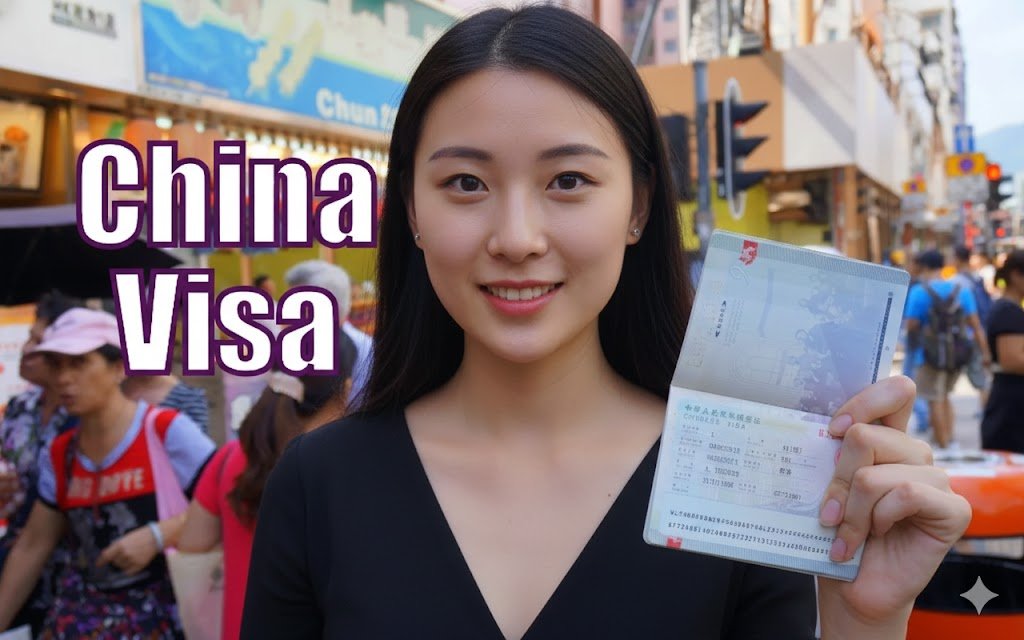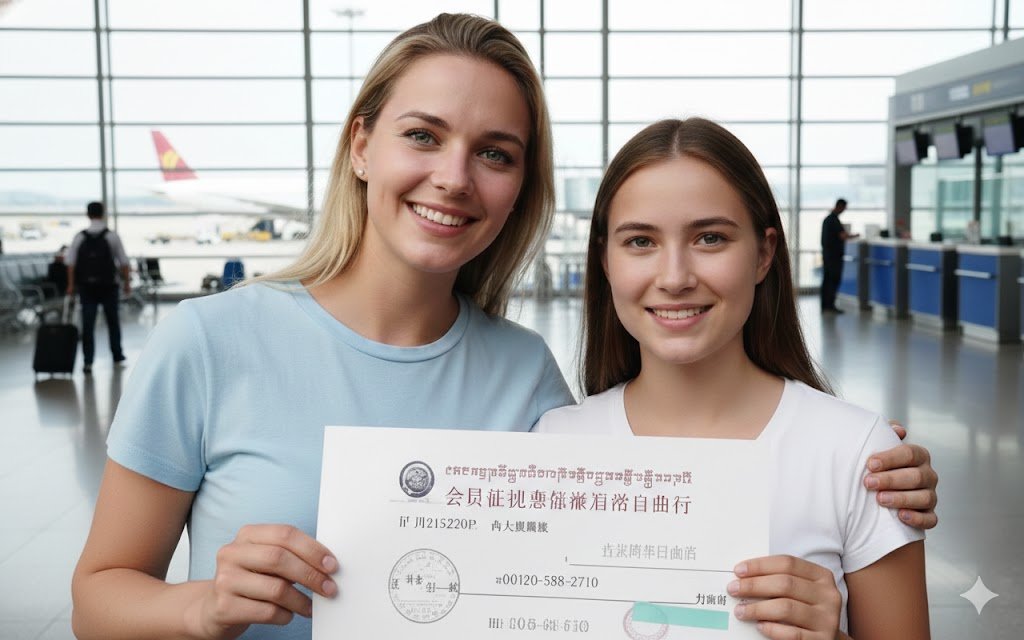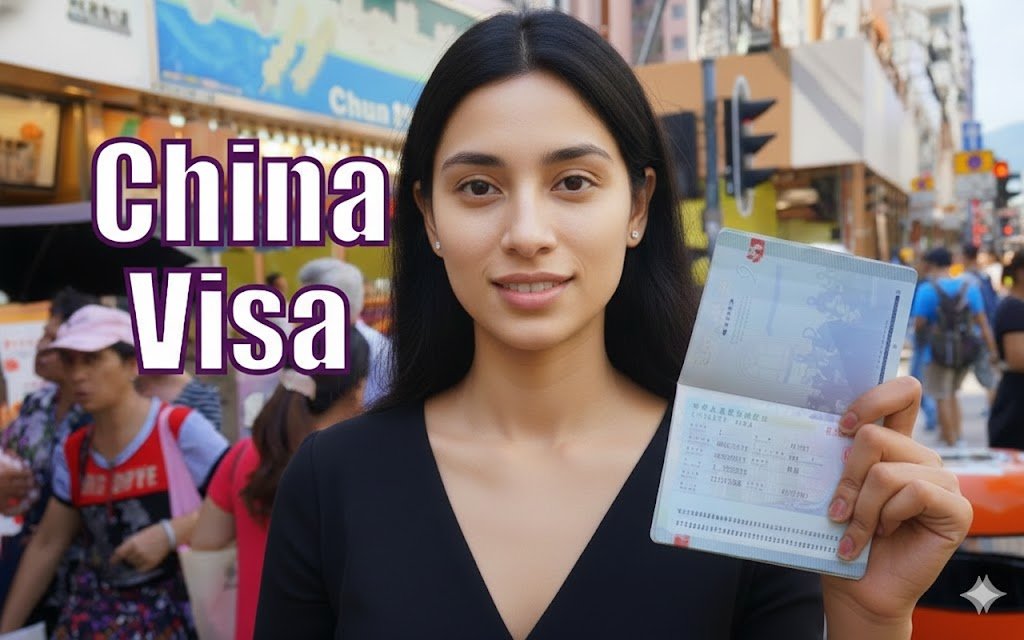Obtaining a China Visa is the essential initial step for both globe-trotters and business executives. It paves the way for exploring China’s expansive cities, historical landmarks, and stunning scenery. This crucial travel document provides a range of visa categories designed to cater to the diverse requirements of global travellers.
Essential Travel Documentation for China
Any journey to China begins with the crucial step of acquiring the right visa. Whether it’s for tourism, business, study, or work, the Chinese Tourist Visa, Chinese Business Visa, and Chinese Student Visa are among the most searched and applied for travel documents by international visitors.

The China Visa Application Process
The application process for a China Visa is straightforward yet meticulous. If you have a passport and a plan, you can go to a Chinese embassy or consulate to ask for a visa. There’s a form to fill out called the China Visa Application Form, and you might need other stuff like invitation letters and proof of where you’ll stay, depending on the visa you want.
China Visa Requirements
The requirements for a China Visa are clear-cut. A six-month valid passport, recent passport-sized photos, and a completed application form are the baseline for all applicants. For specialized visas, further documents such as letters of invitation for business or admission letters from educational institutions may be necessary.
The Visa for China Fee and Processing Time
Cost and time are significant factors for those planning to travel. The cost of a China Visa varies based on the visa type and your nationality. You can pay more for faster processing if you need your visa quickly. Normally, it takes about four to five working days to process a China Visa, but if you’re in a hurry, you can get it done in as little as 24 hours.
Selecting the Right Visa Type
When planning a trip to China, it’s crucial to select the correct category of visa that aligns with the purpose of your visit. The Chinese government has established an array of visa types to cater to the diverse needs of international visitors. Each visa category has specific criteria and limitations regarding the number of entries and the length of stay in China. Here’s a breakdown of the primary China visa categories:
China Tourist Visa (L Visa)
The China Tourist Visa, or L Visa, is designed for those who intend to travel to China for leisure and sightseeing. Applicants for this visa type can opt for:
- Single Entry Visa: Valid for a one-time entry into China within its validity period.
- Double Entry Visa: Allows the visa holder to enter China twice, useful for those planning to visit neighbouring regions like Hong Kong or Macau and then re-enter mainland China.
- Multiple Entry Visas: Best suited for frequent travellers to China, this visa permits multiple entries over a longer period, often ranging from 6 months to several years, depending on the applicant’s nationality and specific bilateral agreements.



China Business Visa (M Visa)
The China Business Visa, or M Visa, is issued to individuals who are visiting China for business-related activities. This includes attending meetings, negotiations, signing contracts, or participating in trade fairs. Like the tourist visa, the business visa also comes in three varieties based on the number of entries:
- Single Entry Visa: Suitable for a one-time business trip within the visa’s validity.
- Double Entry Visa: Allows for two separate business visits, ideal for those with tentative follow-up meetings.
- Multiple Entry Visas: For business professionals with ongoing projects or partnerships in China, requiring frequent travel to the country.
China Visitor Visa (Q Visa & S Visa)
China offers distinct visitor visas, mainly categorized into:
- Q Visa: Aimed at those visiting their Chinese family members or relatives, including Chinese citizens or foreigners with permanent residence in China.
- S Visa: Intended for visitors who are visiting their family members residing in China for work, study, or other purposes.
These visas are typically specific about the purpose of the visit, whether it’s for family reunions, cultural exchanges, or participation in sporting events.
China Student/Research/Internship Visa (X Visa & F Visa)
This category caters to the academic and educational pursuits of international visitors:
- X Visa: Tailored for students who plan to study in China for more than 6 months. The X Visa is further classified into X1 (long-term study) and X2 (short-term study) visas.
- F Visa: Although previously used for business visits. The F Visa is now commonly issued for non-commercial scientific or research activities, cultural exchanges, and internships.
It’s imperative for prospective applicants to carefully evaluate which visa category best fits their planned activities in China. Incorrect visa categorization can lead to entry denials or issues during your stay. Always consult the latest information from Chinese embassies or official visa service centres to ensure compliance with the current regulations and procedures.
Special Regions: Tibet Travel Permits
When you plan to visit the enchanting and mystical landscapes of Tibet, it’s crucial to know about the special permits you need. Tibet is unique and has its own rules, so you must get extra permits along with your main visa. These permits are just as important as your main visa because Tibet is different from other parts of China.
Understanding the Necessity of Tibet Travel Permits
Tibet Travel Permits are indispensable documents that grant you access to the captivating world of Tibet. These permits are not an alternative to your primary China visa but are, instead, complementary documents that authorize your visit to specific areas within Tibet.
Types of Tibet Travel Permits
To explore Tibet, you may need one or more of the following permits, depending on your travel plans:
- Tibet Tourism Bureau (TTB) Permit: This is the primary permit required for all travellers entering Tibet. It’s issued by the Tibet Tourism Bureau and is essential for visiting popular destinations like Lhasa, Shigatse, and Namtso Lake.
- Aliens’ Travel Permit (ATP): This Permit is necessary for visiting areas outside of Lhasa, such as Everest Base Camp. It’s issued by the Public Security Bureau (PSB) and can only be obtained through a registered travel agency in Tibet.
- Military Permit: For travellers planning to venture into military-sensitive areas within Tibet, a Military Permit is essential. This permit is granted by the local military administration and is specific to the elevated regions that fall under military control.
Coordinating the Permit Process
Obtaining Tibet Travel Permits involves a well-coordinated effort. Travellers must provide detailed information, including a copy of their passport and the Aliens’ Travel Permit, to their designated travel agency. The agency, in turn, submits the necessary documentation to the relevant authorities for processing.
Advantageous Visa Exemptions
Seizing Opportunities: Visa Exemptions for Simplified China Travel
China, with its vast landscapes and rich culture, has made it easier for travellers to visit by simplifying its visa rules and offering exemptions to eligible individuals. These exemptions provide a convenient way for people to explore China without the usual hassles of a traditional visa application.
Visa Exemptions for Short Stays
For those planning brief visits to China, the country offers visa exemptions that allow travellers to explore its wonders hassle-free. These exemptions cater to various scenarios, including:
- Transit Passengers: Passengers transiting through eligible Chinese airports can enjoy a visa-free stay for up to 72 hours. This initiative promotes tourism and offers travellers a glimpse of China during layovers.
- 15-Day Visa-Free Policy: Certain regions, such as Hainan, permit travellers from select countries to stay for up to 15 days without a visa. This tropical paradise allows visitors to savour the sun and sea without the visa application process.
Diplomatic Relations and Visa Exemptions
China maintains diplomatic relations with several countries, further facilitating visa exemptions for their citizens. These bilateral agreements ease travel for diplomats, government officials, and those engaged in official exchanges.
Respecting Visa Timelines
Securing a visa is a pivotal achievement, but respecting its stipulated timelines is equally crucial. Travellers must enter China before their visa’s expiration date and adhere to the designated duration of stay. Straying beyond these parameters may lead to legal complications, and it’s imperative to exercise diligence in adhering to these timelines while exploring this captivating nation.
Navigating China’s Visa Process: Your Key to an Unforgettable Adventure
China offers a unique blend of ancient wonders and modern marvels, from the Great Wall to the bustling streets of Beijing and Shanghai. To unlock this unforgettable experience, understanding the China visa process is essential.
- Plan Ahead for a Hassle-Free Journey: Ensure your documents are complete and accurate for a smooth visa application. Seek help from visa professionals or trusted online resources to streamline the process.
- Immerse Yourself in China’s Rich Culture: Once your visa is secured, dive into China’s cultural and historical treasures. Respect local customs and regulations to enrich your travel experience and foster seamless interactions.
- Laying the Foundation for Exploration: A carefully planned visa application sets the stage for a journey filled with discovery. From ancient heritage sites to vibrant cityscapes, the effort you invest in obtaining your visa paves the way for unforgettable memories.
- Start Your Adventure Today: China’s visa process may seem complex, but navigating it with care opens doors to a land where history whispers and modernity thrives. Let your journey begin with confidence, ready to explore one of the world’s most captivating destinations.
Sources: China Embassy Official Website















